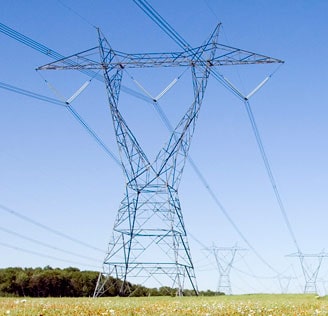Alberta’s weighted average Power Pool Price for November is currently $224.64/MWh. Relative to last week’s price of $272.20/MWh, this represents a decrease of $47.56/MWh or 17.5%. Volatility was significant in the previous week, but prices have started to decline, no longer reaching the highs observed on the 8th and 9th. In fact, pricing over the past week has averaged $163.27/MWh, which has helped suppress the monthly price. Average hourly demand has also decreased week-over-week, as extreme temperatures experienced in early parts of the month have subsided. Further contributing to lower pricing was elevated levels of renewable generation.
The weighted average Hourly Ontario Energy Price (HOEP) is settling at 3.0¢/kWh so far for the month of November, representing a 0.5¢/kWh or 16.9% increase over last week’s settle. Natural gas-burning supply decreased by 4.3% (-1373MW) over the course of this past week, while baseload generation, such as nuclear and hydro, both enhanced their output to an average of 7460MW (6.4%) and 4422MW (5.0%), respectively. Wind, solar, and biofuel reduced week-over-week output (-13.7%; 1864MW, -25.1%; 60MW, -23.9%; 22MW, respectively). With the first Global Adjustment estimated at 4.7¢/kWh, November’s total market price is settling at 7.7¢/kWh as of today.
In the news, the Globe and Mail published an opinion piece by University of Waterloo professor of sustainable energy, Jatin Nathwani, in which he stated the share of fossil fuels within the global energy system was at 85% in 1990 and is still at 85%, albeit the mix of fossil fuels (heating oil, coal and natural gas) has changed over the years. His article came out on the heels of a report released by International Energy Agency (IEA) at last week’s COP27 in Egypt, that issued a challenge to the world: cut 90% of coal use by 2050 if we want to meet its net zero goals and limit global heating to 1.5C. Nathwani praises the Ontario government for its decision to build a new reactor at OPG’s Darlington facility and refurbish its Pickering nuclear plant. While nuclear power as a percentage of the global primary energy output has actually decreased since 2000, he states it’s, “a safe and proven source of energy that currently displaces more than two billion tonnes of carbon-dioxide emissions globally, equivalent to taking 500 million cars (or half of the world’s passenger vehicles) off the road.” That is an impressive statistic, indeed! In related news, Bruce Power was part of the Canadian delegation at COP27, where they announced that they are developing a Nuclear Carbon Offset Protocol, with plans to register the project on the Canadian Standards Association (CSA), GHG CleanProjects® Registry, which is based on ISO 14064 standards for greenhouse gas inventory and reporting. Bruce Power has now called for Expressions of Interest for its Clean Energy Credits and Carbon Offset protocol project, which will bring together key partners in the energy sector and establish the necessary validation pathway that will allow new, incremental/additional, and possibly refurbished nuclear to be accredited for avoided emissions.
– Grace Wilton, Senior Energy Advisor / Ryan Cosgrove, Energy Data Analyst








Add comment